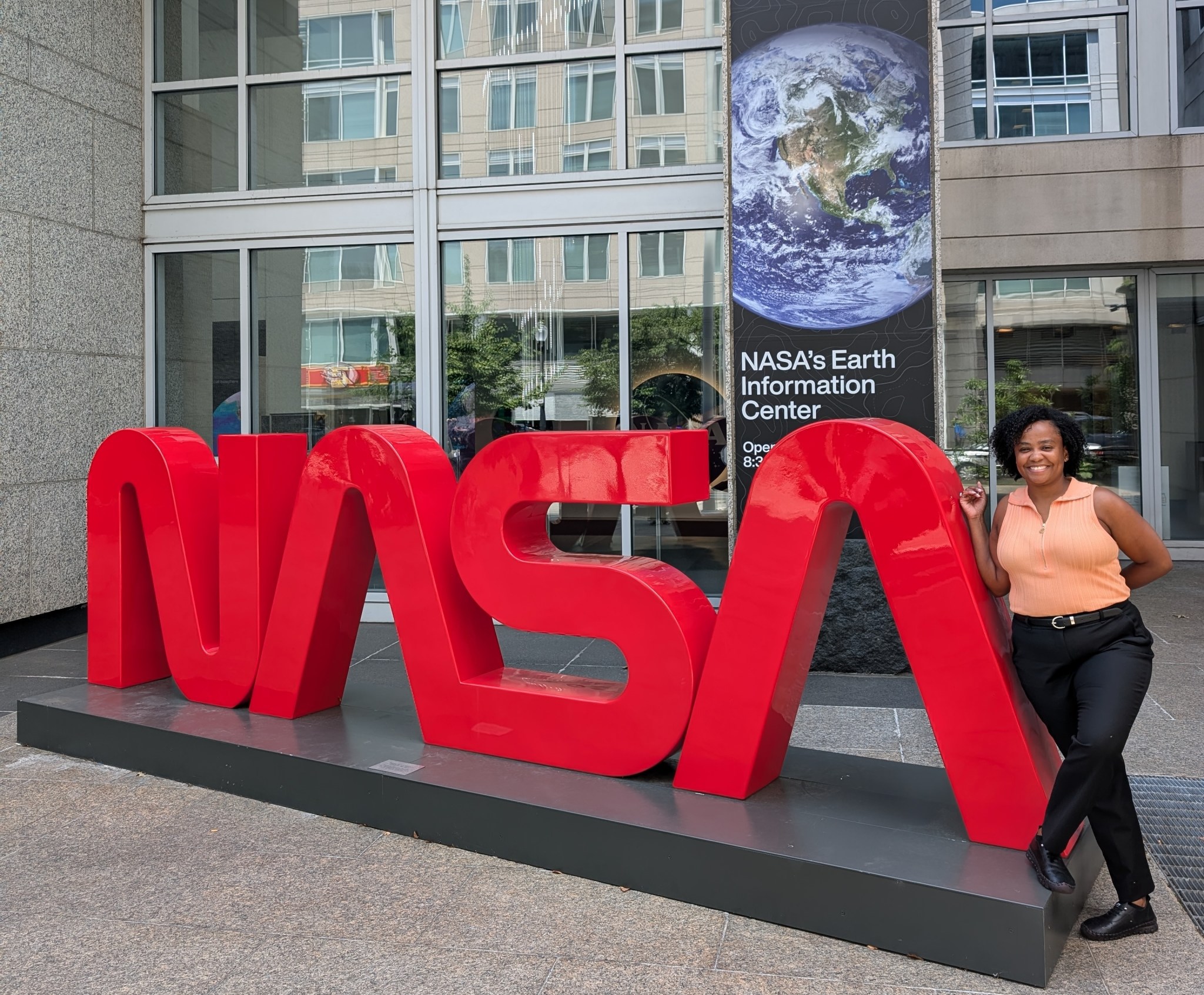Intern Lena Young, whose work revolves around DEIA and open science, stands next to a NASA sign at the NASA Earth Information Center in Washington, DC
Photo courtesy of Lena Young
Students in NASA’s Chief Data Science Office (OCSDO) are working to promote open science during the summer 2024 internship session. Their projects span a variety of areas, including user experience, policy and DEIA (Diversity, Equity, Inclusion and Accessibility).
Lena Young: Increasing DEIA Engagement
Lena Young, a doctoral candidate in the Creative Leadership for Innovation and Change program at the University of the Virgin Islands in St. Thomas, envisions spatially equal societies 100 – 300 years into the future as part of her dissertation. Her NASA internship project involves researching ways to make science more accessible to diverse groups and interacting with NASA leadership to assess how well they are engaging with historically underserved or excluded communities.
Young also worked with her mentors to find overlap between her internship project and her doctoral work as a futurist. “In 30 years, after NASA has achieved its goals, what would open science look like?” Young said. “I want to see what different futures I can create for open science and DEIA engagement.”
Becca Michelson: The Advancement of Politics
Becca Michelson has a passion for increasing the availability of scientific information. A soon-to-be physics and astronomy major from Smith College in Northampton, Massachusetts, she was drawn to a hands-on role researching the current state of open science policy for OCSDO. By understanding the challenges and opportunities in this field, she is helping NASA better support researchers in making their science accessible to everyone.
“Open science makes this a more inclusive field, where if I’m an early-career scientist, I can build on the science that other people who are experts in the field have done,” Michelson said. In the future, she hopes to apply open science principles to her astronomy research, drawing on the best practices she learned at NASA.
Salma Elsayed-Ali: Linking science, user experience
Salma Elsayed-Ali is on a mission to bridge the gap between science and usability. She recently completed her PhD in Information Science with a focus on Human-Computer Interaction from the University of Maryland, College Park. Her internship project at NASA involves conducting UI/UX (User Interface/User Experience) research on some of OCSDO’s science products, specifically the Open Science 101 online course.
Elsayed-Ali became interested in open science during the height of the COVID-19 pandemic, when she conducted UI/UX research on open data sites that provided the public with real-time information about the spread of the virus. This experience sparked her interest in helping users reap the benefits of open science as part of an internship with NASA.
In improving OCSDO’s open scientific interfaces, Elsayed-Ali acted as the product lead on a UI/UX research project for the first time. “I was drawn to this project as it was an opportunity to advocate for both end users and the advancement of open science,” said Elsayed-Ali. “I really liked the idea of creative and practical solutions that improve the user experience while saving the product team time and resources.”
/Public Notice. This material from the original organization/author(s) may be current in nature and edited for clarity, style and length. Mirage.News does not take institutional positions or sides and all views, opinions and conclusions expressed herein are solely those of the author(s). Watch it in full here.
